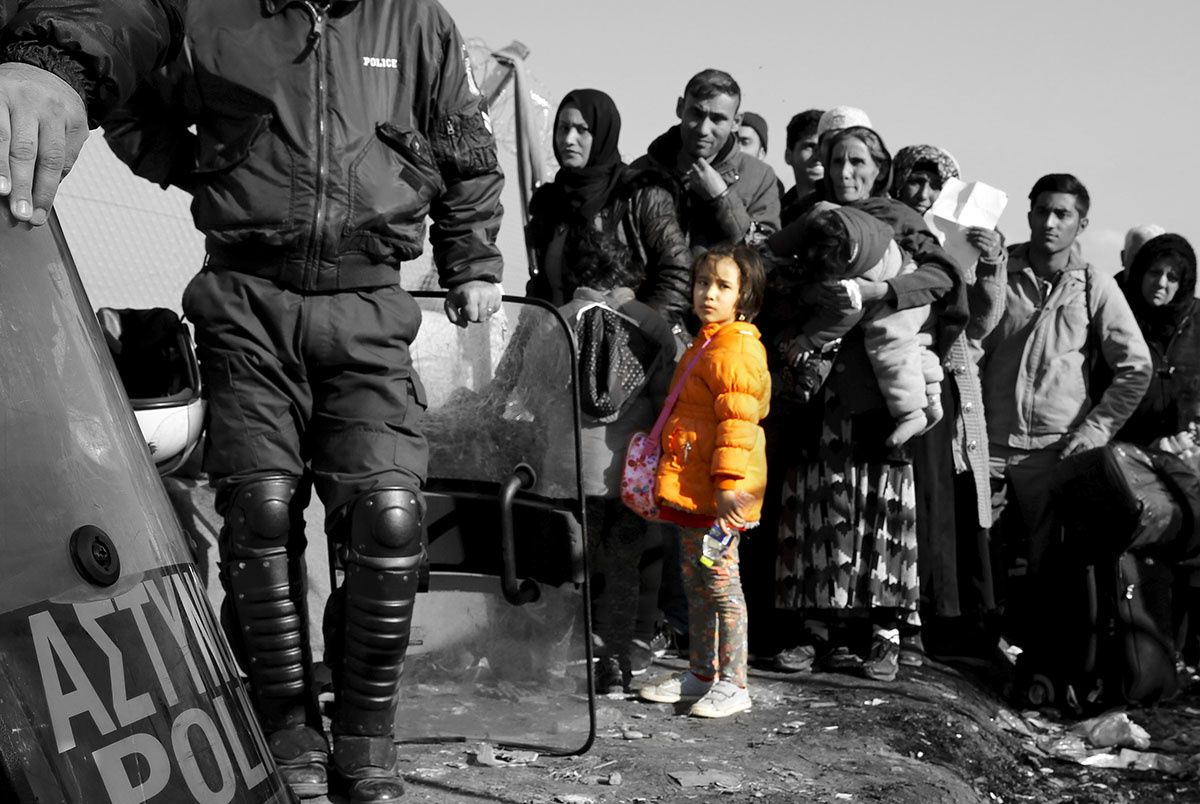November 21, 2019
A family of refugees steps off a boat or arrives at a border. Should they be allowed to enter? This question provokes passionate responses in countries around the world these days.
But there's a second set of questions: if they are admitted, where will they live? How will they learn a new language? How will their children be educated? Will they have access to the training needed to get jobs to help them support themselves?
In short, how can they be integrated into society?
These questions are at the heart of a new report from the EU, which warns of a potential "lost generation" of migrants, people who enter Europe to build better lives but then find little chance of integrating into society.
Between 2015 and 2018, nearly two million people were granted protection within the European Union. Some were refugees. Others were migrants looking for better economic prospects for themselves and their families. About 80 percent of these people were under the age of 34.
To ensure they can be integrated, the report calls on EU member states to:
- speed up asylum procedures
- cut the red tape that delays the reunification of families
- provide proper housing
- improve mental healthcare for refugees under enormous stress
- grant asylum applicants early access to education, vocational training, and jobs to protect them from exploitation of their labor or criminals pushing them toward lives of crime.
This is not charity. EU countries, especially those with fast-aging populations, need an infusion of young people to power their economies and pay for their social safety nets. Immigrants can provide that boost, but only if they're given a real opportunity to contribute.
The report's authors point to good news. They say that the six countries covered in the report (Austria, France, Germany, Greece, Italy and Sweden) have already taken positive steps on housing and on language programs for children. But there are still dangerous gaps that need to be addressed in all these countries.
This is a global problem. There is nothing uniquely European about this challenge. There are now more than 71 million displaced people around the world. It's a hot political topic in every region of the world, and the forces that have pushed so many from their homes—war, organized crime, the impact of changing weather patterns on agriculture, inequality among nations, and broader public awareness of better conditions elsewhere—continue to intensify.
The bottom-line: Serious thinking about how best to integrate migrants will benefit the countries that choose to welcome them and the migrants themselves. The need will only grow more urgent in coming years.
More For You
- YouTube
At the 62nd Munich Security Conference in Munich, GZERO’s Tony Maciulis spoke with Benedikt Franke, Vice Chairman and CEO of the Munich Security Conference, to discuss whether the post-1945 global order is under strain or already unraveling.
Most Popular
- YouTube
Zelensky agrees: elections matter #PUPPETREGIME
As more small businesses move sales, payments, and customer relationships online, they unlock new opportunities, but they also become easier targets for cyber-criminals and other threat actors.
TOKYO, JAPAN - FEBRUARY 8: Japan's Prime Minister Sanae Takaichi, leader of the ruling Liberal Democratic Party (LDP), places a red paper rose on the name of an elected candidate at the LDP headquarters on general election day on February 08, 2026 in Tokyo, Japan. Voters across the country headed to polls today as Japan's Lower House election was held.
Photo by Kim Kyung-Hoon - Pool/Getty Images
When Japanese Prime Minister Sanae Takaichi called snap elections last month, it was a big gamble. Holding a winter election just four months into her tenure with no real policy record to run on?
© 2025 GZERO Media. All Rights Reserved | A Eurasia Group media company.
